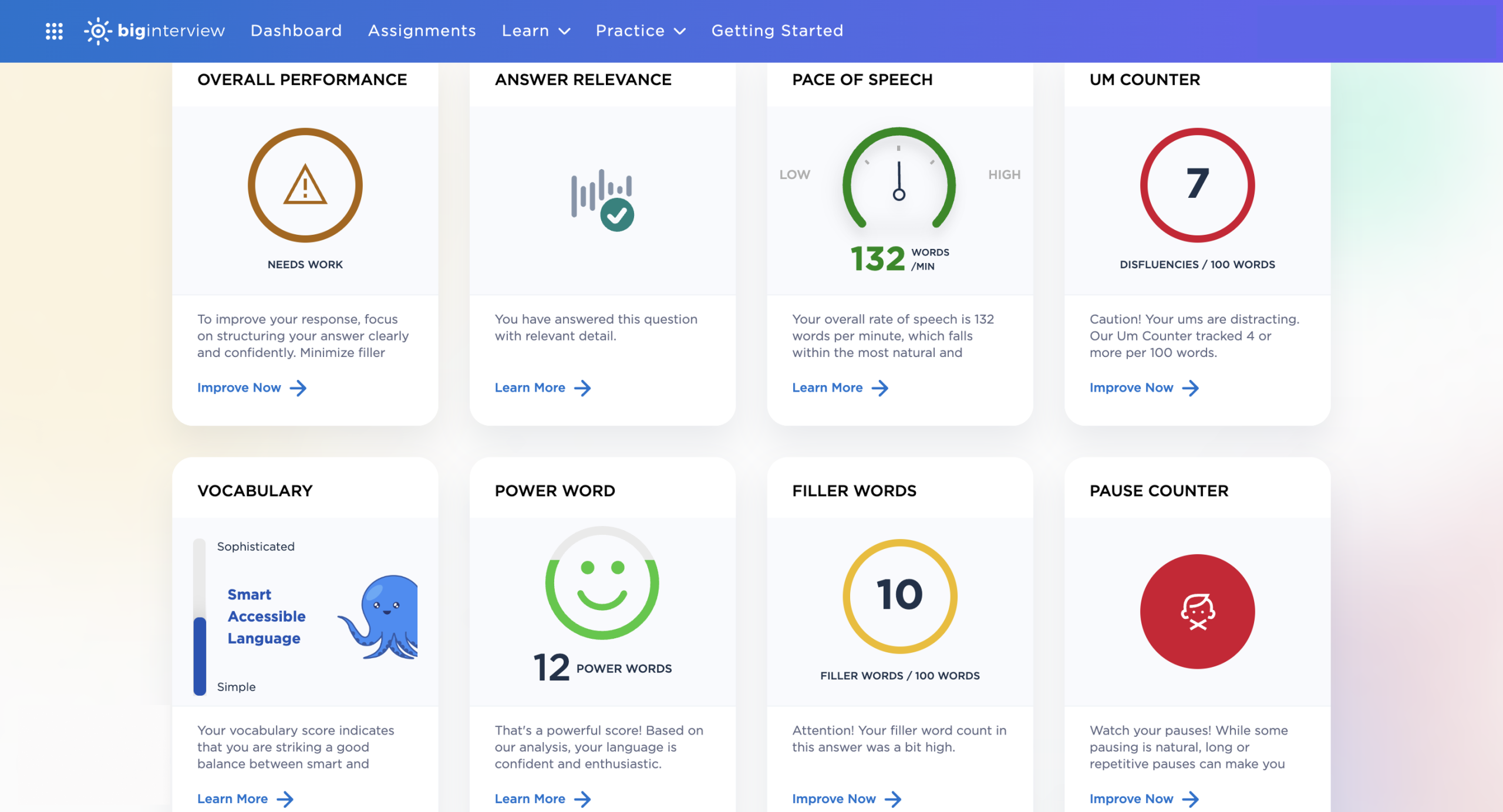Ever walked out of an interview replaying everything you wish you’d said differently?
I see you.
Most people make at least one avoidable mistake in interviews — whether it’s blanking on a common question or realizing too late you didn’t do enough to stand out.
It’s okay, you’re human. These things happen. The most common mistakes are also the easiest ones to fix, with a bit of awareness and practice.
Here are five mistakes I see time and time again as a coach, along with simple tactics to correct them.
🔵Not preparing answers to the basic interview questions
You know they’re coming: “Tell me about yourself,” “Why do you want this job?”, “What are your strengths and weaknesses?”
And yet, many candidates freeze or ramble when faced with these standard questions. Not because they don’t know the answers, but because they didn’t structure them properly or haven’t practiced saying them out loud.
What to do instead:
Think of these fundamental questions as opportunities to take control of the conversation early on. Prepare brief, focused responses in advance. Even if it’s just bullet points.
For “Tell me about yourself”, use a simple framework: Present → Past → Future.
Where you are now, how you got here, and what you’re hoping to do next (ideally, at this company).
You could say:
I recently graduated with a degree in Communications, where I focused on digital media and completed two internships — one in social media marketing and another in content writing for a nonprofit. I also worked part-time at the university help desk, where I learned about problem-solving and customer service. Now I’m excited to start my career in marketing, and I was really drawn to this role because it combines creativity with a mission I believe in.
🔵Not providing examples of your past success
Hiring managers want proof. They want to hear about the time you solved a problem, launched a project, improved a process, or helped a teammate.
Too often, candidates speak in vague statements and generalities: “I’m a team player.” “I always go above and beyond.” But without specific examples, those claims don’t stick.
What to do instead:
You need to be more specific and assertive. Interviewing well starts with self-recognition — you should own your strengths and speak about them confidently. All your coursework, part-time jobs, gigs, and projects count, and you have every right to speak about them with confidence.
For the best outcome, use the STAR method (Situation, Task, Action, Result) to structure your answer:
When I worked in customer support, we noticed a rise in complaints about our onboarding process. (Situation)
I was asked to look into it. (Task)
I interviewed new users, rewrote parts of our onboarding emails, and created a short walkthrough video. (Action)
Within a month, support tickets related to onboarding dropped by 30%. (Result)
🔵Not paying attention to your body language
You might not even notice you’re doing it — crossing your arms tightly, avoiding eye contact, fidgeting with a pen, not smiling, or slouching in your chair.
Body language can influence how confident, trustworthy, or engaged you seem. Interviewers are trained to notice these signals, and can tell how honest and comfortable you are with a topic or how well you handle stress.
How to fix this:
Practice your body language just like you practice your interview answers. Record yourself on your phone, use a video interview simulation tool, or ask a friend to mock-interview you.
Big Interview has a powerful mock interview tool you can use to practice. First, you record yourself answering real interview questions. Then, you can watch the recording to see how you did, but you also get detailed AI feedback. The tool scores not only the content of your answers but also 12+ other important criteria, like how many times you said “umm,” your eye contact, and body language.

One caveat: be mindful of cultural differences, because body language isn’t universal.
- In some cultures, direct eye contact can signal confidence, but in others, it may be seen as disrespectful.
- A firm handshake is expected in many Western interviews, but in Japan or India, a bow or gentle nod may be more appropriate.
- Gesturing while speaking can be seen as passionate and engaged — or distracting, depending on the setting.
If you’re applying internationally or to a global company, take a few minutes to research business etiquette in that country.
🔵Badmouthing your previous manager or company
Maybe your last job wasn’t great. Maybe you were micromanaged, passed over for promotion, or the company made promises it didn’t keep.
But speaking negatively in an interview (even if it’s justified) can backfire badly. It shifts focus away from your qualifications and raises red flags about your attitude. They may wonder:
- Will this candidate bring drama into our team?
- What will they say about us if things don’t work out?
- Are they difficult to work with?
Here’s the thing: This is actually one of the very few interview questions where you don’t want to get too specific. Keep your answer professional by focusing on what you learned from the experience and why you’re excited about what’s next.
A good example answer:
I learned a lot in my last role, especially about working under pressure and juggling priorities. Over time, I realized I was looking for a team environment that’s a better fit for my collaboration style. I like your team culture and I think I’d succeed here.
🔵Not having any questions at the end of the interview
When interviewers ask, “Do you have any questions for us?”, they’re hoping the answer is “yes”. This isn’t a formality — they’re actually expecting you to have a few thoughtful questions.
Not asking anything can make it seem like you’re only mildly interested in the role or haven’t taken the time to learn about the company. It’s a missed opportunity to show curiosity, preparation, and be memorable.
What to do instead:
Come prepared with 3–5 questions. You won’t have time to ask them all, but it’s good to have options in case some get answered during the conversation. Avoid questions about PTO or benefits in early interviews. Save those for later rounds or when you’ve received an offer.
Some questions I recommend asking:
- “What does success look like in this role after 6 months?”
- “How would you describe the team culture?”
- “If you had a magic lamp and could change anything about this company, what would it be?”
- “How is the company implementing the latest AI technologies?”
If you just got home from a rough interview, don’t despair. And definitely don’t dwell. We’ve all been there. The key is to reflect, learn, and get ready to do better next time.
I hope this list was helpful. If you want to go deeper, check out this full article on common interview mistakes and how to fix them. It covers 20+ tips to help you show up stronger in your next interview.
